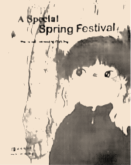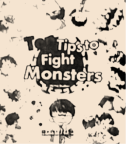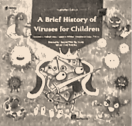广东省广州市海珠区2022-2023学年九年级上学期期中考试英语试题
广东
九年级
期中
2022-12-11
295次
整体难度:
适中
考查范围:
主题、语篇、短语辨析、词汇、语法、单词辨析
一、语法选择 添加题型下试题
Have you ever thought about what kind of job you would like to have when you grow up? Many people think that they can have only one job in their lifetime.
J.K Rowling, the writer of the
The former US President Ronald Reagan began his working life
The famous 149th century artist Vincent van Gogh
Jobs are always open to changes. The important thing is
| A.Since | B.Although | C.Until | D.Unless |
| A.little | B.a little | C.few | D.a few |
| A.a | B.an | C.the | D.∕ |
| A.decides | B.decided | C.will decide | D.have decided |
| A.their | B.them | C.they | D.theirs |
| A.changing | B.change | C.to change | D.to changing |
| A.success | B.succeed | C.successful | D.successfully |
| A.write | B.writing | C.wrote | D.to writing |
| A.on | B.for | C.to | D.as |
| A.become | B.became | C.to become | D.becomes |
| A.is | B.are | C.was | D.were |
| A.or | B.and | C.but | D.so |
| A.This | B.That | C.It | D.One |
| A.find | B.to find | C.found | D.to finding |
| A.neither | B.either | C.all | D.both |
【知识点】 工作与职业
二、完形填空 添加题型下试题
When I was 16 years old, I visited the United States for the first time. I was really looking forward to having a
How wrong I was! The misunderstanding (误会) began at the airport. I was
“Yes,” I said. “I want to give my friend a ring.” “Are you getting married?” He was
“I just want to give my friend a ring to tell him I’ve
“Oh, I see!” he said. “There’s one downstairs.” When at last we did meet up, Danny explained the misunderstanding to me. “Don’t
| A.terrible | B.dangerous | C.nice | D.boring |
| A.looking for | B.looking after | C.giving out | D.getting on |
| A.refused | B.lost | C.encouraged | D.tricked |
| A.sad | B.excited | C.angry | D.surprised |
| A.young | B.healthy | C.tall | D.heavy |
| A.failed | B.stopped | C.arrived | D.slept |
| A.cry | B.worry | C.laugh | D.ask |
| A.thoughts | B.ideas | C.ways | D.difficulties |
| A.meaning | B.spelling | C.listening | D.writing |
| A.expect | B.invite | C.understand | D.trust |
三、阅读理解 添加题型下试题
How to fight against COVID-19? We choose some books to help you. The books were translated into 13 languages, including Japanese, French and Russian. They are convenient for readers to enjoy.
 | Virus, Virus, You Cannot Scare Me! by Mu Xiangzhen The book makes parents and children be able to learn—in a fun way—about how viruses spread and what people can do to protect themselves. It tells children not to fear about viruses. Besides, it also introduces the idea of getting along well with nature, and hopes children can protect wild life and the natural environment |
 | A Special Spring Festival by Gao Jing This book pictures children’s special Spring Festival in China during the outbreak of COVID-19. It tells a story of a common family in China. It tries to answer the child’s question “Why can’t I be allowed to play outside? It tells the child what COVID-19 is, how it spreads, and how we can protect ourselves from it. The pictures show love between family members, friends and everyone. |
 | Ten Tips to Fight Monsters by Dong Ruihan Dad leaves 10 tips to help us fight the virus. Who will win the war? The story will gently teach children how to prevent the disease in a language that they can easily understand. It will help kids remain calm in the hard time, and encourage them to help family members to prevent the disease. |
 | A Brief History of Viruses for Children by Changsha White-flag Dolphin Children’s Book Workshop This story book tells the origin of the virus, so the readers can understand the history of the virus easily. The book sets up a “Ten Questions about COVID-19” section, which explains the knowledge of COVID-19 (including how it spreads), helping children readers to understand the virus basing on reason and science. |
| A.Virus, Virus, You Cannot Scare Me! | B.A Special Spring Festival |
| C.Ten Tips to Fight Monsters | D.A Brief History of Viruses for Children |
a. Virus, Virus, You Cannot Scare Me!
b. A Special Spring Festival
c. Ten Tips to Fight Monsters
d. A Brief History of Viruses for Children
| A.a, b, c | B.a, b, d | C.a, c, d | D.b, c, d |
| A.The books were translated into many languages. |
| B.Children can do something to protect themselves. |
| C.We can understand the virus basing on reason and science. |
| D.Dad raises 10 questions about the virus in Don Ruihan’s book. |
I earned my graduate degree in the UK and planned to live there. But things didn’t go to plan. I found a great job in America, teaching drama. Years passed and I still hadn’t made it back to Europe. I did, however, find myself working at a university. This is when China knocked on my door.
The university encouraged us to attend classes as part of our professional development. They offered two foreign language choices: Chinese and Japanese. For I liked Chinese food a little more, I decided to take the course. Two terms in, and I was hooked! I co-founded the Chinese Culture Club at school. We attended the Spring Festival celebration hosted by our local Chinese community center. I learned to make baozi and tried out my fledgling language skills at the local Chinese restaurant.
The club decided on a foster (寄养) home that supported orphans (孤儿). It helped me make a decision to visit China. After all, if I’m going to learn a language, I might as well go to the country itself! So I made arrangements with the foster home to volunteer in exchange for lodgings. My stay would be three weeks.
A year of language learning did not prepare me for the culture. Firstly, dirt roads, stray dogs, limited indoor heating and the language problem made me very worried. Luckily, the people there helped me work through the change from America to China.
Once the initial shock wore off, I was completely charmed. The food was amazing, the people were friendly and curious, and the children were cute. My Chinese was pushed to its limit. I used my weekends to take in everything from the Forbidden City, the Summer Palace and the Great Wall. I also took a trip to the Shaolin Temple in Henan province.
And, just as I was getting comfortable, it was time to go home. I knew before I left that I would return, not just for a visit, but to live.
Ten long years later, a chance came itself. I left everything except my 16-year-old cat, Darcy, and we are now happily two years into our new lives in Beijing.
It took me a decade to move to China. And it was worth the wait.
29. When did China knock on the writer’s door?| A.While studying in the UK. | B.After earning his graduate degree. |
| C.While working at a university. | D.After going back to Europe. |
| A.He felt relaxed. | B.He fell cheated. | C.He felt bored. | D.He felt interested. |
| A.the writer came to China to support orphans |
| B.the writer was used to the life in China at first |
| C.the writer stayed in Beijing for three weeks |
| D.the writer now is living in China with her cat |
| A.complain the time she waited | B.praise the delicious Chinese food |
| C.tell us the period of learning Chinese | D.show us how she loves China |
It was 3: 21 a. m. when nine-year-old Tom awoke to the smell of burning. Except for the cracking(爆烈声)of fire somewhere below there was not a sound in the two-storey house.
With his father away on night duty at a local factory, Tom was worried about the safety of his mother, his sister Karen. 14 and his 12-year-old brother Todd. He ran downstairs through the smoke-filled house to push and pull at Karen and Todd until they sat up. Then he helped each one through the house to the safety of the garden, There, his sister and brother, taking short and quick breaths and coughing, lying on the grass.
The nine-year-old boy ran back into the house and upstairs to his mother’s room. He found it was impossible to wake her up. His mother, breathing in too much smoke, was unconscious and there was nobody to help Tom carry her to the garden. But the boy stayed calm and, as a fireman said later, “acted with all the self-control of a trained adult.”
On the bedroom telephone, luckily still working. Tom called his father and, leaving his father to telephone the firemen and ambulance service, got on saving his mother.
First, he filled a bucket with water from the bathroom and threw water over his mother and her bed. Then, with a wet cloth around his head he went back to the garden.
He could hear the fire engine coming up, but how would the firemen find his mother in the smoke-filled house where fire had almost swallowed up the ground floor?
Getting a ball of string(线)from the garage. Tom ran back into the house and rushed upstairs to his mother’s room. Tying one end of the string to her hand, he ran back, laying out the string as he went, through the hall and back out into the garden.
Minutes later, he was telling fire chief John, “The string will lead you to mother.” His mother was carried to safety as the fire were breaking through her bedroom floor.
33. Why did Tom run downstairs first?| A.He wanted to save his sister and brother. |
| B.He was worried about his mother’s safety. |
| C.He wanted to find out what was happening. |
| D.He went to see if his father had come back from work. |
| A.fearless | B.surprised | C.senseless | D.frightened |
a. He tied the string to her mother’s hand.
b. He helped his sister and brother to a safe place.
c. He made a phone call to his father.
d. He smelled something unusual
e. He poured some water over his mother.
| A.b-d-c-a-e | B.d-b-c-e-a | C.c-d-b-a-e | D.b-d-c-e-a |
| A.Tom learned something about first aid |
| B.Tom followed his mother’s instructions |
| C.Tom’s father taught him to do so on the phone |
| D.Tom dealt with the emergency calmly and wisely |
Now, cities large and small often have remains of earlier historic streets and sidewalk pavements(人行道). Yet they often go unprotected even when they may be older than historic buildings that have enjoyed protection for tens of years.
There are many reasons to protect historic pavements—culture value, economics(经济)and public safety. Pavements played an important part in the modernization(现代化)of city environments in the 19th century.
Before the laying(铺设)of pavement, streets of dirt caused many problems to people, especially in wet weather when they became muddy(泥泞的), which brought trouble to people’s life.
To solve the problem, cities experimented with different kinds of materials to balance durability(耐用性), economics, sources of materials and noise considerations.
The earliest pavements in many cities were made of rounded stones. They were cheap and durable(耐用的), but rough and noisy. Loose stone pavements were cheap and smooth, but not very durable. Wood also appeared in the 1850s as a popular choice—smooth and quiet , but not very durable.
In many cities and towns, brick(砖)streets are the only historic pavements that have survived. It is easy to think of the past when seeing historic pavements. However, they are more similar to the early high buildings and parks—important city features(特征)that showed the modernization of the city. At a time when cities are becoming increasingly similar, such pavements also help define(定义)an important sense of place.
37. What is the present situation of historic pavements?| A.Being highly valued as cultural buildings. | B.Failing to represent modern environments. |
| C.Being brought back to its former glory(辉煌). | D.Failing to receive protection they should get. |
| A.To help develop the local economy. | B.To bring convenience to people’s life. |
| C.To develop a unique “pavement identity”. | D.To prevent earth from being washed away. |
| A.Different experiments on city identity. | B.Popularity of different paving materials. |
| C.Development of pavements of different materials. | D.Advantages and disadvantages of stone pavements. |
| A.To protect the historic pavements. | B.To tell ways of building pavements. |
| C.To show the modernization of the city. | D.To introduce the history of the pavements. |
Everyone knows that fish is good for health.
| A.Do not buy it. |
| B.It just requires a little knowledge. |
| C.When buying fish, you should first smell it. |
| D.There are many common methods used to cook fish. |
| E.The fats in fish are thought to help prevent heart disease. |



